Long-term aid
In situations where there is a high risk of natural disasters, epidemics and wars, SOLIDARITÉS INTERNATIONAL helps to strengthen local communities’ ability to withstand such events: in other words, their ability to bounce back after a crisis, return to normal living conditions and adapt to their new constraints and obstacles.
Strengthening communities' resilience
200
million people
practice pastoralism¹
134
million hectares of
arable land disappeared
between 2000 and 2020²
$ 1
invested in
access to water
yields $2³
4
billion people have
at least one water
shortage every year⁴
Agroecological practices can enable farmers to produce sufficient, high-quality food in a sustainable way while adapting to climate challenges” quote signed Adrienne Daudet, food security and livelihoods referent.
Cedric Fioekou, Food Security and Livelihoods Advisor
Drawing on a field analysis of people’s vulnerabilities when faced with various shocks and impacts, SOLIDARITÉS INTERNATIONAL’s work involves preparing for and mitigating disasters so that they can reduce these vulnerabilities in the long term, right from the initial emergency response phase.
Training and communicating expertise
In order to strengthen communities’ abilities to withstand shocks and impacts, SOLIDARITÉS INTERNATIONAL draws on existing traditional know-how at local level to which it adds its own expertise. Training in good hygiene practices will also help to eradicate certain diseases, such as cholera. Promoting agro-pastoral practices appropriate to local parameters is designed to improve agro-pastoral production by building in sustainable management of natural resources.
SOLIDARITÉS INTERNATIONAL helps people with the process of adapting to new constraints and obstacles: for example, by developing small-scale irrigation in the Sahel, delivering vocational training for displaced populations unable to re-start their traditional activities, and promoting saline-soil resistant seeds.
Building infrastructures that last
When the situation allows, SOLIDARITÉS INTERNATIONAL builds and rehabilitates sustainable infrastructures. By emphasizing the importance of using quality materials, as well as training local technicians, our teams ensure that these techniques can be replicated once the project has finished. Typical schemes include drinking water supply networks, irrigation channels, grain banks and latrine faecal sludge treatment plants.
Reinforcing the capacities of local players
Community empowerment is absolutely essential if we want the projects we implement to work out in the long term. For every project we develop, we train infrastructure maintenance and management committees.
SOLIDARITÉS INTERNATIONAL works in collaboration with communities, civil society and governments in order to find the right, long-term solutions for problems encountered. Our priority is to ensure that those involved locally are able to continue the work started as part of a project, once the organization withdraws.
In many countries, SOLIDARITÉS INTERNATIONAL forges partnerships with local associations and institutions, in order to strengthen their knowledge and their institutional, organizational, technical and material capacities. This is an approach that also enables SOLIDARITÉS INTERNATIONAL to absorb the special expertise possessed by these partners, particularly their knowledge of the local area, an essential factor when implementing quality programs.
These partnerships include schemes such as building veterinary pharmacies for livestock associations, developing local chlorine and soap production with women’s organizations, training water point management committees and trades associations, and repairing pumps and well-digging equipment.
Minimizing the risks of natural disasters over the long term
32%
of natural disasters
are floods⁵
423
natural disasters in 2015
versus 26 in 1950⁶
205
million people affected
by natural disasters in 2016⁷
131
billion USD is the
cost of natural
disasters in 2022⁸
After the flood, the embankment protecting the village was destroyed. SOLIDARITÉS INTERNATIONAL compensated us for rebuilding it and to level 4 kilometres of the main road, which was also completely destroyed.
Ful Jan Katum Bibi, Bangladeshi villager
Over 250 million people have been affected by natural disasters in the last decade. 95% of these people live in developing countries. Climate change has a long-term influence on the increasing intensity and frequency of these disasters. SOLIDARITÉS INTERNATIONAL incorporates a natural disaster risk analysis to ensure that its schemes are of the utmost suitability.
ReBuilding and anticipating
In the aftermath of a natural disaster, SOLIDARITÉS INTERNATIONAL delivers an emergency response by helping communities cover their basic needs. But it doesn’t stop there. Right from the start, we introduce activities designed to boost communities’ capacities, ensuring that they are better prepared should a new disaster occur and that any negative impacts (destruction of crops, housing, food stocks, basic infrastructures and drinking water access) are minimized. Whether they face flooding, forest fires or drought, communities have always been able to autonomously develop solidarity, adaptation and prevention mechanisms to reduce the impact of such disasters. It is in this context that SOLIDARITÉS INTERNATIONAL works in conjunction with communities, promoting a model whereby the community manages its own disaster risks.
Together, we work to find solutions to help boost the resilience of people living in disaster-prone areas. Examples include raised latrines in Pakistan, the rehabilitation of embankments in Bangladesh to reduce the impact of flooding, community management of pastureland in Afghanistan (enabling better conservation of natural resources in the face of an unpredictable climate), the incorporation of natural disaster risk analysis when rebuilding neighbourhoods in Haiti, and the creation of water management committees in areas hit by drought in Kenya.
Source figures :
¹Pastoralism | Policy Support and Governance Portal | Food and Agriculture Organization of the United Nations (fao.org)
²STATISTICAL YEARBOOK WORLD FOOD AND AGRICULTURE 2022 (fao.org)
³Rapport Sanitation and Water for All, 2020
⁴Four billion people facing severe water scarcity – Science Advances, February 2016
⁵2022 Global natural disaster assessment report | PreventionWeb
⁶EM-DAT, CRED / UCLouvain (2023)
⁷EM-DAT, CRED / UCLouvain (2023)
⁸2022 Global natural disaster assessment report | PreventionWeb
Should you have any questions, please contact Amélie Cardon.

Publications
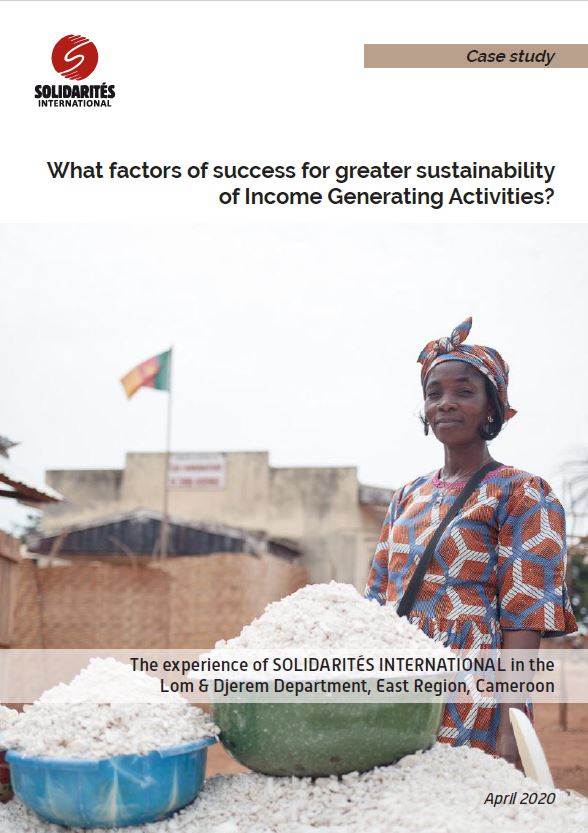
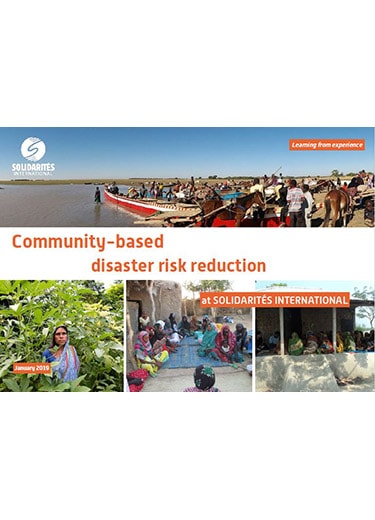


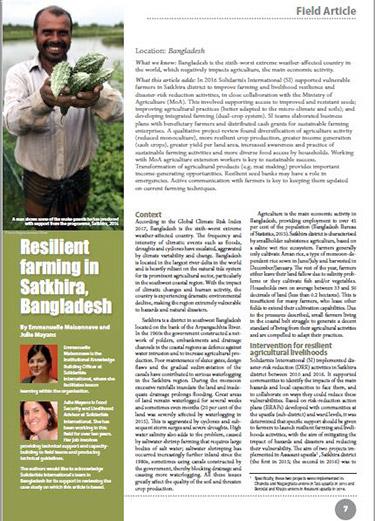
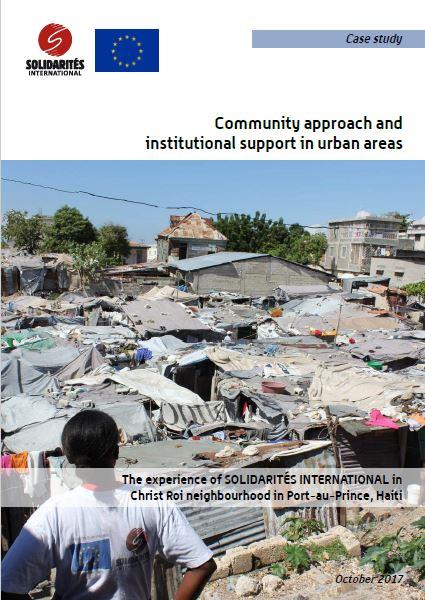
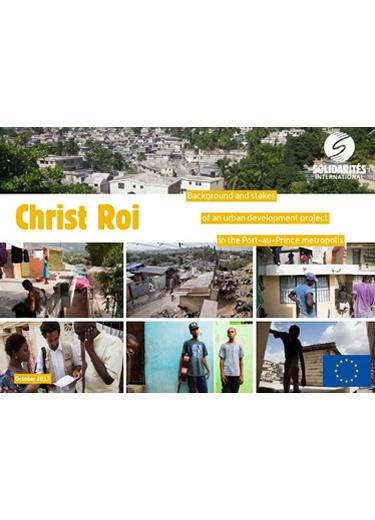
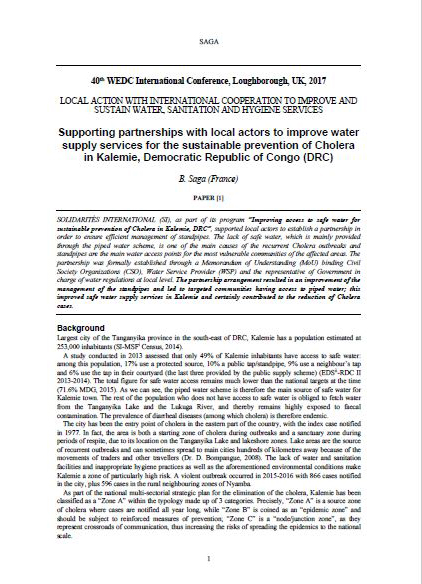
Vacancies
At head office
Worldwide
Internships
